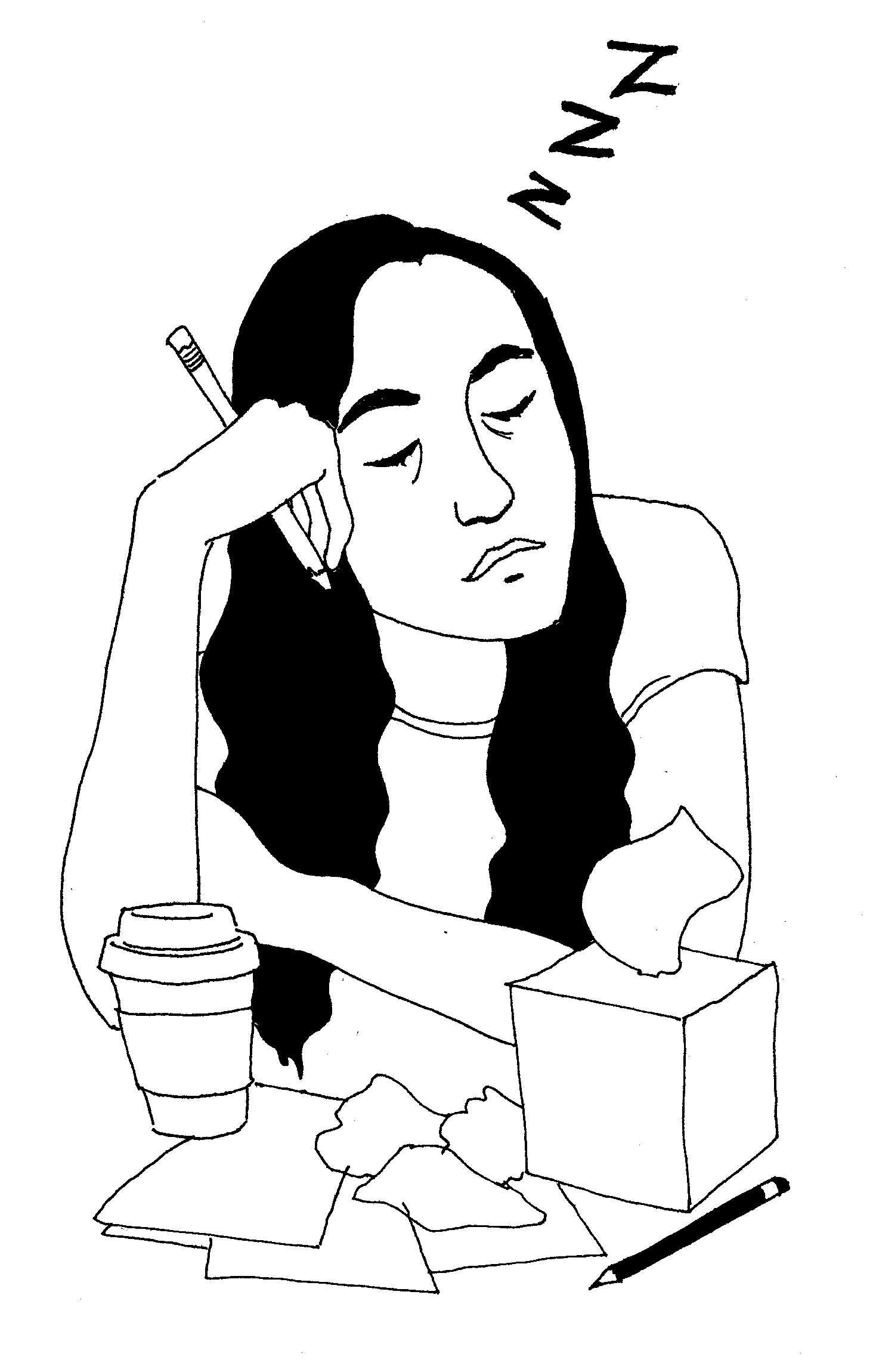Snooze but don’t lose: prioritizing sleep
November 10, 2017
 This
piece represents the opinion of the author
.
This
piece represents the opinion of the author
.
In the first semester of freshman year, I caught the common cold four times—practically every time the virus meandered throughout campus. Not one to get sick often, I couldn’t understand why I was having this problem. Simultaneously, I was staying up until at least 2 a.m. each night in a repeating pattern of either choosing to goof off with floormates or needing to cram for an exam.
I have always been bad at prioritizing sleep. There never fails to be something more fun or more necessary to do. But consistently getting only five hours of sleep a night resulted in me stumbling across the quad, zoning out during friends’ weekend tales or strategically dozing off whenever my professor faced the board. My moment of realization came after the blackout, when I emerged from the forced early nights more alive than I’d been since summer break. So, I decided to try upping my sleep to a minimum of eight hours.
The hardest part, even though my baseline is exhaustion, was getting to bed. There’s a certain space-time threshold at night that when crossed, can’t be recovered. After you cross it, hours will pass by but sentences on the page stay the same. No amount of caffeine can fix this. Once my focus is gone, so is all perceptible progress.
But with my new commitment, being aware of when I needed to be asleep for my 8:30 a.m. class helped me avoid the time warp. The Bedtime feature on the Clock app also kept me from fooling myself: whereas a short YouTube video or two would mysteriously cause another hour or two to disappear into the universe, I had to actually go to bed when in bed.
Soon, I started waking to the sound of silence, the absence of my alarm, which seemed just as good as birds chirping. For the first time on college school nights, I was getting the proper amount of sleep for my body. While earlier nights meant I was technically spending less time working, my productivity increased. I spent less time staring into the void between my eyes and my computer screen.
Sleep also helped me to be more present throughout my day. When I realigned my priorities, I was able to stop seeing Bowdoin as an obstacle course of to-dos. Conversations with friends seemed more meaningful and classes more engaging. To put it simply: I was awake.
I’ve been having flashbacks to middle school health class (the parts I haven’t blocked from my memory) and the wellness diagram—that equilateral triangle with sides devoted to physical, mental and social health. These three components combine to form a healthy individual. It’s not the maximization of one, but the balance of all three that matters.
Yet at Bowdoin, this imbalance can be flaunted. I admit that I have joined in by bragging about all-nighters or gleefully chugging coffee at all hours of the day. While part of me thought I had discovered a secret cure-all this week, I felt guilty for putting myself first. We’ve all been told that sleep is important; but we sometimes live like grades are our only priority.
Our society operates with an “if you snooze, you lose” attitude. If you don’t burn out in college, there’s plenty of time left. Everyone seems to be pushing toward some finish line—whether buying a house, earning a raise or getting to retirement. But don’t sleep on the benefits of practicing self-care: in any form or amount, it can help. Instead of trying to maximize achievements by viewing life as a series of goals, we need to maximize the quality of the period spent reaching them. The only real way to lose a race is if life passes you by.


Comments
Before submitting a comment, please review our comment policy. Some key points from the policy: